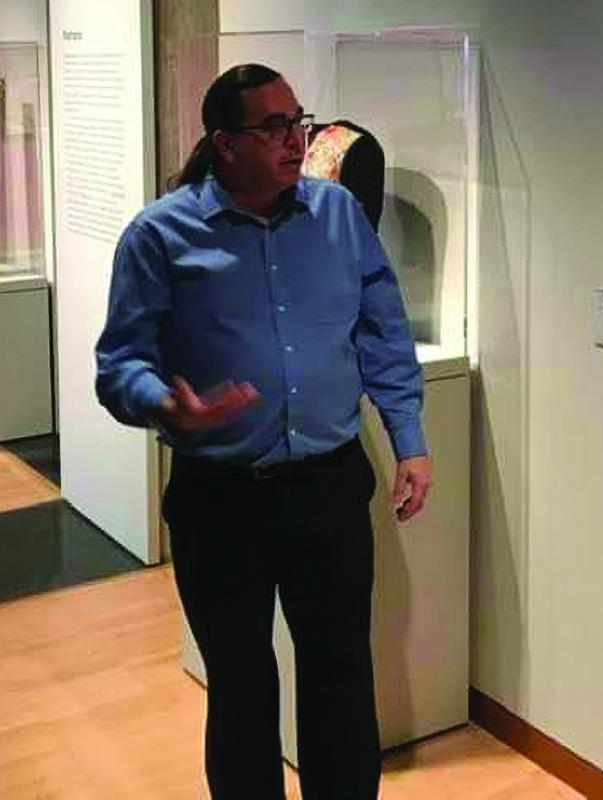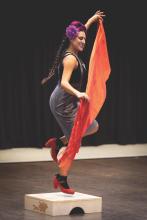Notable Quotable: Chris Newell (Passamaquoddy) on Language as Cultural History

Chris Newell. Photo courtesy of Akomawt Educational Initiative
"As our tribe started to work toward federal recognition and started to get access to money for housing on the reservation with electricity, with running water, what my father and others started to observe is that with English-speaking media coming into our households, like radios and televisions, that the children, myself included, were learning English first not Passamaquoddy first. And then we were going to the [Bureau of Indian Affairs] school, which is English-only. Passamaquoddy was being taught as an extracurricular; it wasn’t even being taught until my father and others started those programs. Before that, the only place you could learn Passamaquoddy was in a Passamaquoddy-speaking household. He realized that if we have a generation growing up speaking only English, then they lose that ancestral tie, because one of the things our language does is it ties us to all of our ancestors. It ties us to the land, because our language was formed on the landscape that we currently live on in the Dawnland, in our home territory. By keeping those things alive, the music as well as the language, we can, in the modern-day times, still be tied to all of our ancestors from the past and maintain the continuity going forward."
When talking about his educational bonafides, historian and museum educator Chris Newell (Passamaquoddy) may tell people that he went to the school of Wayne Newell. The elder Newell, Chris’ father, was an early advocate for the study and preservation of Native American cultures from an Indigenous, rather than colonizer, point of view. His father’s insistence on understanding Native Americans as members of living cultural communities has been at the heart of Newell’s own work. While the first part of Chris Newell’s career was as a traveling musician who played Indigenous music, he now runs the New England-based educational consultancy Akomawt Educational Initiative with co-founders endawnis Spears (Diné/Ojibwe/Chickasaw/Choctaw) and Dr. Jason Mancini. The trio’s mission is to educate museums, schools, and other institutions on how to work with tribal art and artifacts in a way that foregrounds Indigenous cultural practices and ways of thinking. Hear more from Chris Newell in the American Artscape issue, Contemporary Culture: Equity and Access in the Arts for Native American Communities.





